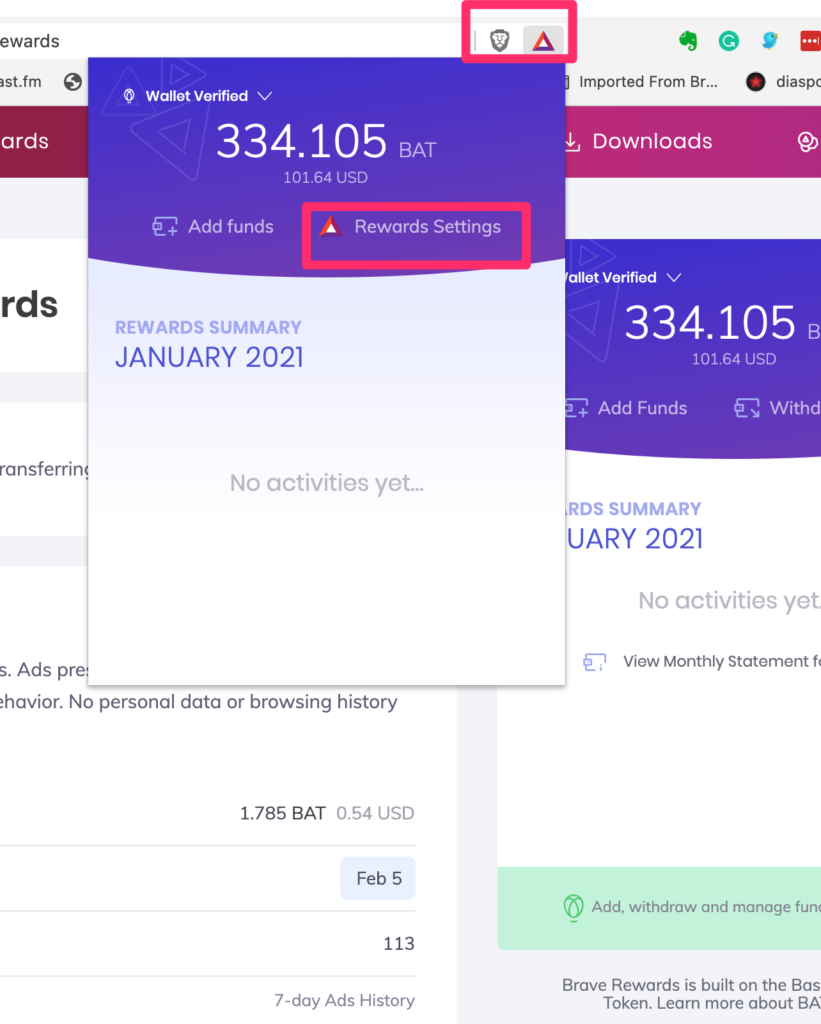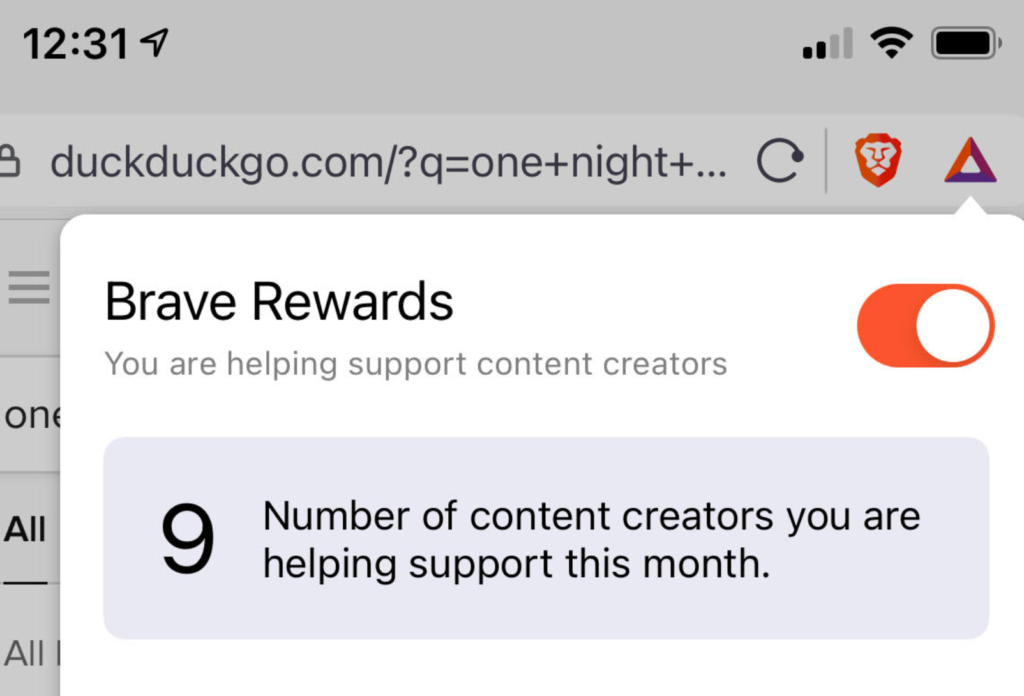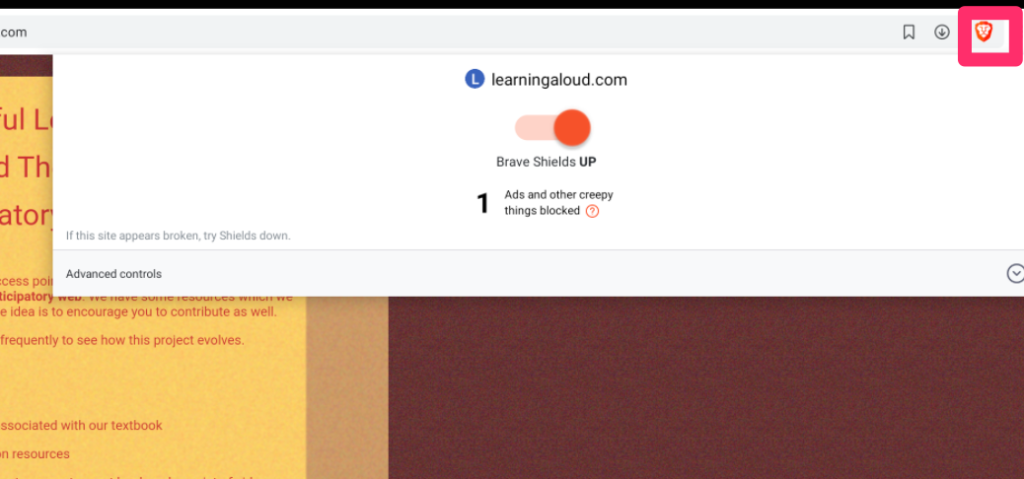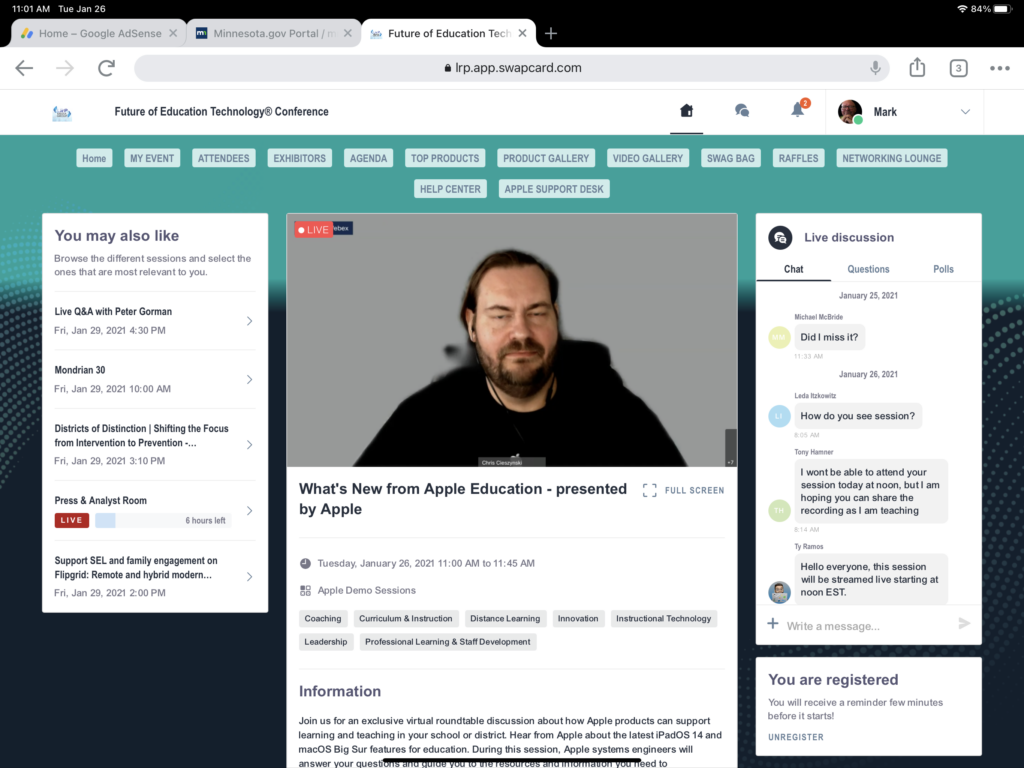I have supported and used the Brave browser and ecosystem since the ecosystem has been available. If applied by a user, the Brave exosystem both blocks the collection of personal information as is common with our browsers and allows a way to display ads without collecting and sharing personal information to compensate content creators and service providers.
I work on multiple devices and lately I have experienced the way both Google and Apple have diminished the full potential of Brave.
So, if you use the Brave browser on an Apple or Windows computer, you can both block the collection of personal information, view Brave supported ads, and compensate content providers. All of these features are available from the two icons located to the right of the text window displaying the URL you have accessed with the Browser. The lion icon will allow you turn on ad blocking (and other blocking capabilities) and the triangle icon opens up a page allowing you to collect BAT (a cryptocurrency from viewing Brave ads) and allocate BAT to the content providers you visit.

Recently, Apple removed certain features Brave offered from iOS devices. You can still block ads and cookies, but you can no longer reward providers based on the extent to which you spend time with their content or services. For example, you cannot tip a provider for content you find particularly useful. Apple explains this as violating a policy concerning the exchange of resources outside of the Apple store (see the linked information for a better description). So the browser looks and acts differently on a phone or tabler.

A Chromebook (Google) will allow a user to download and use the browser (it is built with chromium) and you can block the collection of personal information, but you cannot display ads or compensate creators. I suppose since Google supports itself by selling ads this makes sense.

I am satisfied with using Brave on a computer, but I am concerned with the long term opportunities of the model because the company is being squeezed out of making revenue on so many devices.



You must be logged in to post a comment.